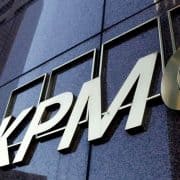|
Getting your Trinity Audio player ready...
|
By Kwazi Dlamini
A recent series of briefs by the Helen Suzman Foundation (HSF) has shed light on the role that four particular professional service industries have played in enabling corruption – these industries are law, accounting, auditing and management consulting. Among their members are names we have become used to hearing about, and not always in a good way – Trillian Management Consulting, Hogan Lovells, KPMG, Bain, McKinsey, and more.
Our new mini-series delves into the foundation’s findings. This is part two, which examines the role of the professions in enabling state capture and malfeasance. Part one looked at the professions under scrutiny and the laws and regulatory bodies – if any – to which they are subject.
The exposure and aftermath of state capture revealed numerous parties who were involved in the phenomenon, with resultant public outrage and shock. Some of the parties were global, well-respected companies in their respective specialities. This raises questions about the efficacy of regulation, particularly in the legal, accounting and auditing professions where oversight bodies do exist. Those professions are widely thought to be exemplars of integrity, which the public can trust to flag any wrongdoings; however, the revelations around state capture proved otherwise. It’s important to note, however, that HSF does not consider only these four professions to be the main culprits – but for the purposes of the brief, these professions came under the spotlight.
Auditing
The auditing profession plays a significant role in flagging corrupt activities in both the private and public sectors, given their scope of work. Companies like KPMG, PwC and other auditing firms took centre stage when their role in state capture became known, with KPMG taking what might be the most notorious role. Among the allegations, the auditing firm allegedly covered up fraud by granting an unqualified audit opinion to VBS Mutual Bank, with its lead auditor alleged to have received R34-million for the work. KPMG allegedly facilitated tax evasion for Gupta-owned companies, falsely characterising wedding expenses as business-related.
KPMG has since apologised for its involvement in the state capture after it was investigated by IRBA. The company was also the subject of investigation by the South African Institute of Chartered Accountants (SAICA). For its conduct, the auditing firm suffered severe consequences – besides the global backlash, there were job losses and major clients taking their business to other auditing firms. As a form of reparation the firm offered to pay some R47-million to civil society organisations from the fees it received from Gupta-related businesses.
Another global auditing behemoth, PwC, found itself under investigation for overlooking failures in procurement processes at South African Airways and was fined R200 000, of which R50 000 was suspended. Irregular auditing conduct does not only affect the public sector – Deloitte was responsible for erasing billions of rands from government employees’ pension fund investments after the firm failed to flag accounting irregularities in Steinhoff Holdings’ books and gave the firm an unqualified audit opinion.
Law
While the role of attorneys and legal practitioners in state capture may be subject to interpretation, those implicated in state capture, whether in a good or bad way, also have a right to legal representation. The lawyers have an obligation to serve their clients to the best of their ability but these abilities should not involve circumventing the law to the advantage of their client; attorneys also have an obligation towards the Republic of South Africa, which they serve.
The HSF cites one law firm as a point of contention – Hogan Lovells received massive backlash for issuing a report used by former revenue service commissioner Tom Moyane to clear the organisation’s former COO Jonas Makwakwa of any wrongdoing in the accusation of money laundering. However, Hogan Lovells refused to acknowledge any improper conduct, saying that its investigation mandate did not include criminal conduct. Moreover, in January 2019 former Bosasa COO Angelo Agrizzi implicated a former Hogan Lovells partner in his testimony before the commission of inquiry into state capture, regarding payments made to government officials.
While the law firm may have not acted in South Africa’s best interest, it can be easily argued that it acted in the best interest of the client, which is legal as long as no laws were circumvented. Another law firm that was accused of irregular practice is the Gupta-linked Stein Scop Incorporated. Gupta-linked Trillian Management Consulting allegedly moved R80-million through the law firm’s trust account. In response to the allegations Stein Scop argued: “It is important to distinguish the role the legal profession plays as distinct from other service providers such as accountants and consultants. We do act for unpopular clients from time to time. Our job, as attorneys, is to ensure that even these clients are entitled to protect or enforce their rights under law (as guaranteed in the Constitution).”
Another practice discussed in the brief is the role attorneys play in helping their clients avoid consequences of malfeasance by employing what is known as the Stalingrad defence method. This involves delaying the court proceedings to avoid prosecution or exhaust the pockets of the person bringing the charges. Citing former president Jacob Zuma as a prime example of this practice, the HSF notes that the use of this method by his defence team cost taxpayers approximately R32-million.
Management consulting
Bain and Company and its role in state capture shed light on this unregulated profession. The Nugent commission of inquiry found the global consultancy company to have premeditated the “seizure” of the South African Revenue Service (Sars). Bain, as a consultant to Sars, advised for the restructuring of the tax-collecting agency, which had disastrous consequences for the South African public. The restructuring advice received from Bain led to the increase of value-added tax.
Another consulting firm exposed through the state capture revelations is McKinsey; the company did consulting work for Eskom without a proper contract in place and had to repay R902-million that it received from Eskom. McKinsey allegedly levied R1.6-billion for a six-month contract and R600-million of this fee was paid to Trillian despite them doing no billable work on the project. As part of reparations, the North Gauteng High Court ordered Trillian to pay back the money to Eskom.
The HSF brief argues whether management consulting can be considered a profession considering the lack of regulatory bodies to supervise and hold to account those practising in this field. The lack of regulatory bodues enforcing codes of ethics within the management consulting field has enabled gross abuse of power.
Accounting
Former Bosasa COO Angelo Agrizzi implicated two accountants at the Zondo Commission investigating state capture, alleging that they were involved when Bosasa paid bribes to prominent politicians and government officials. After these revelations the South African Institute of Professional Accountants (SAIPA) launched a probe against the implicated individuals and promised that if found guilty, these members would be dealt with accordingly.
“Any SAIPA member found to have violated the Professional Code of Conduct and International Federation of Accountants Code of Ethics will be dealt with accordingly,” said SAIPA in a statement.
According to the SAIPA statement, if found to have put the body into disrepute and failed to uphold its ethics, the implicated individuals can be stripped off their membership.
The allegations of improper conduct within these professions leaves a huge dent on their reputation; it also leaves a question of whether they can be trusted in future to do what is best for the South African public. Management consulting can be regulated like other professions and those professions which already have supervisory bodies can take firm steps to ensure their members adhere to their rules of conduct and ethics.








